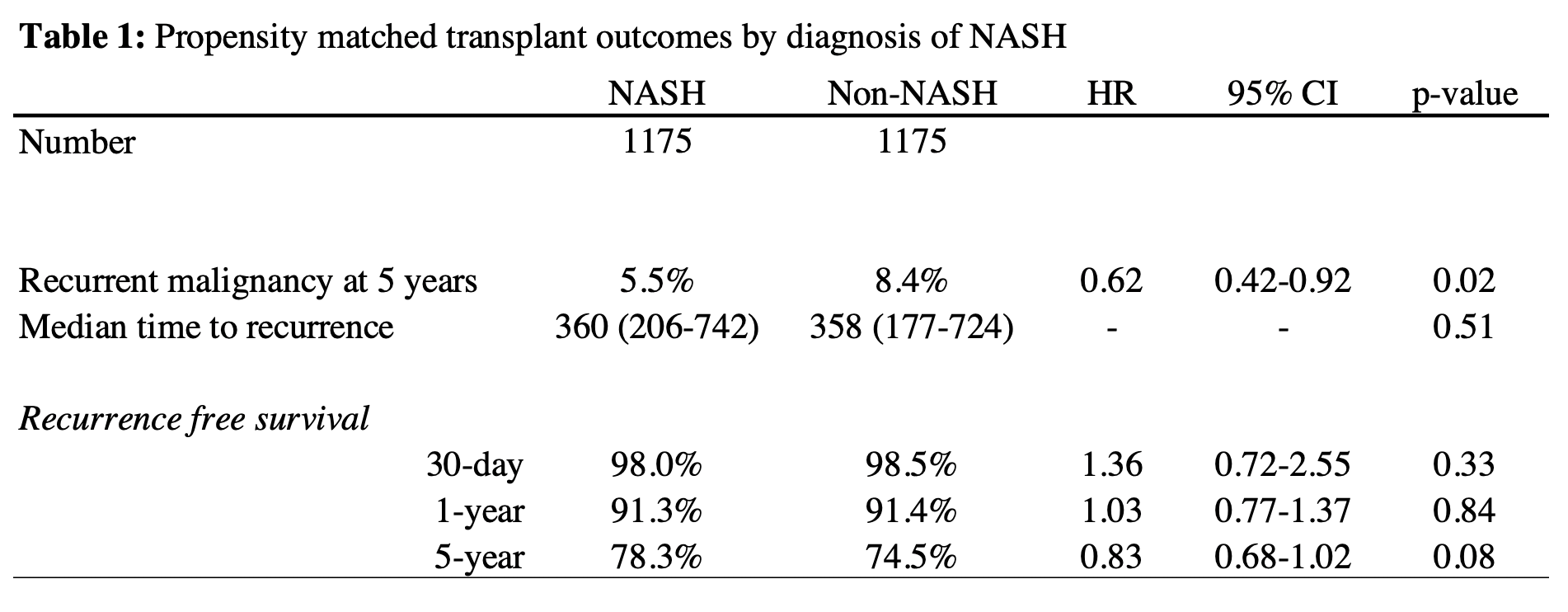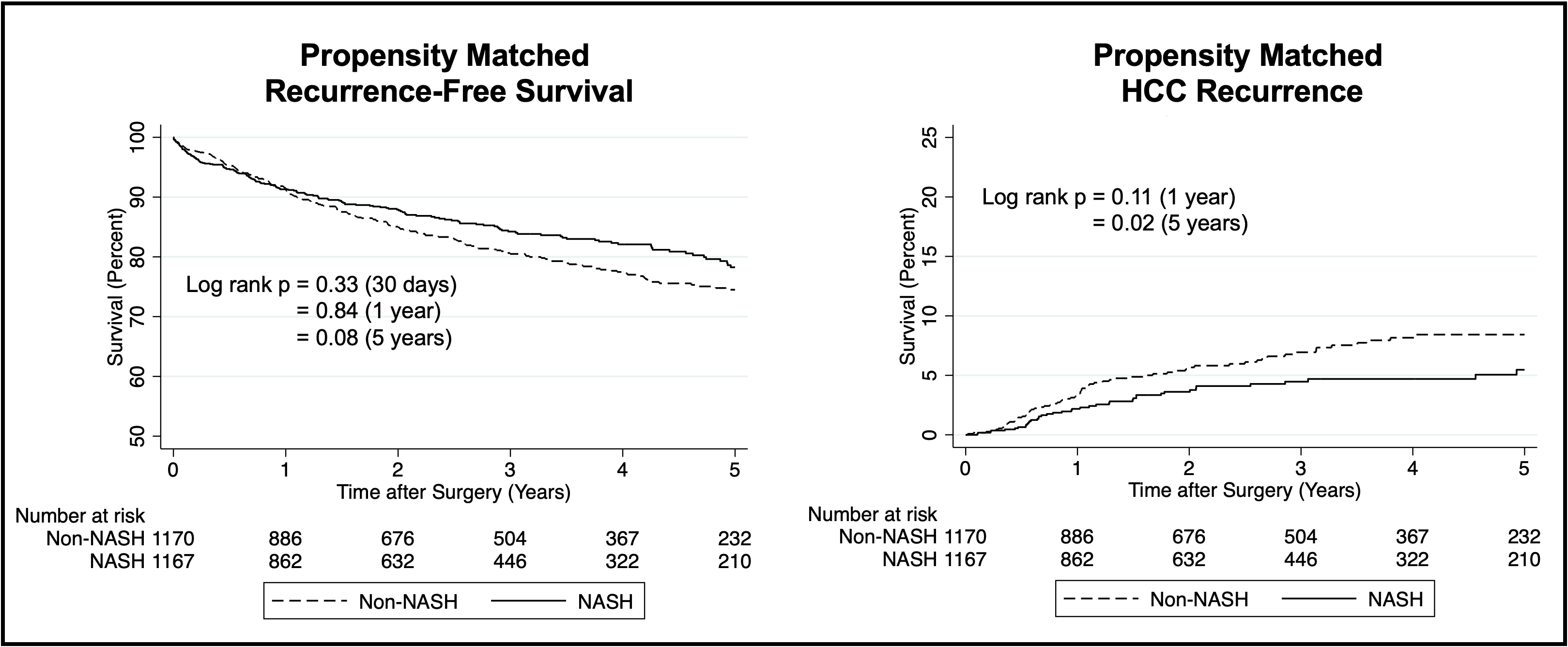NASH-Related HCC is Associated with Lower Rates of Post-Transplant HCC Recurrence: A Large Database Analysis
Department of Surgery, Thomas Jefferson University, Philadelphia, PA
Meeting: 2021 American Transplant Congress
Abstract number: 85
Keywords: Hepatocellular carcinoma
Topic: Clinical Science » Liver » Liver: Hepatocellular Carcinoma and Other Malignancies
Session Information
Session Name: Liver Transplant Oncology
Session Type: Rapid Fire Oral Abstract
Date: Saturday, June 5, 2021
Session Time: 6:00pm-7:00pm
 Presentation Time: 6:10pm-6:15pm
Presentation Time: 6:10pm-6:15pm
Location: Virtual
*Purpose: As incidence of hepatocellular carcinoma (HCC) and Non-Alcoholic Steatohepatitis (NASH) increase, NASH-related HCC is an increasingly common transplant indication. Large-scale studies evaluating transplantation for NASH-related HCC are limited, as are studies controlling for metabolic disturbances and systemic comorbidities characteristic of NASH patients. This study attempts to address both, comparing transplantation for NASH-related HCC to non-NASH-related HCC on a national scale.
*Methods: Retrospective analysis of the Organ Procurement and Transplantation Network database identified 1342 NASH and 10,642 non-NASH patients with HCC. After propensity score matching (PSM) to address patient and tumor-related confounders 1175 of each group remained. Primary outcomes assessed were recurrence and recurrence free survival. Additional regression modeling assessed NASH as a predictor of death or recurrence.
*Results: Upon PSM baseline recipient, donor, transplant and tumor characteristics were largely similar between NASH and non-NASH groups. BMI did remain higher in NASH patients (31.7 vs. 28, p<0.01) as did recipient age (65 vs. 64, p=0.02) and incidence of diabetes (72.1% vs. 31.4%, p<0.01). Recipient ethnicity also remained disparate. As demonstrated in Table 1, recurrence at 5 years was lower 5.5% in NASH vs. 8.4% in non-NASH patients (p=0.02). Recurrence-free survival at 5 years was 78.3% in NASH vs. 74.5% in non-NASH patients (p=0.08). Adjusted multivariable regression accounting for factors independently predictive of recurrence at 5 years demonstrated that NASH was protective against recurrence (HR: 0.63, p<0.01).
*Conclusions: In a large-scale propensity matched analysis, HCC in NASH patients appears less likely to experience HCC recurrence at 5 years leading to improved recurrence-free survival. This is supported by NASH itself being a protective factor against cancer recurrence in adjusted regression analysis. While ongoing investigations into the biology of HCC in NASH and non-NASH are essential, this study suggests that HCC in NASH may have improved cancer outcomes after transplant.
To cite this abstract in AMA style:
Altshuler PJ, Lamm R, Patel K, Dang H, Shaheen O, Shah AP, Glorioso J, Ramirez CG, Frank AM, Maley WR, Bodzin AS. NASH-Related HCC is Associated with Lower Rates of Post-Transplant HCC Recurrence: A Large Database Analysis [abstract]. Am J Transplant. 2021; 21 (suppl 3). https://atcmeetingabstracts.com/abstract/nash-related-hcc-is-associated-with-lower-rates-of-post-transplant-hcc-recurrence-a-large-database-analysis/. Accessed March 2, 2026.« Back to 2021 American Transplant Congress


